Xbox Series X vs Xbox Series S: which Xbox is right for you?
The Xbox Series X vs Xbox Series S side by side
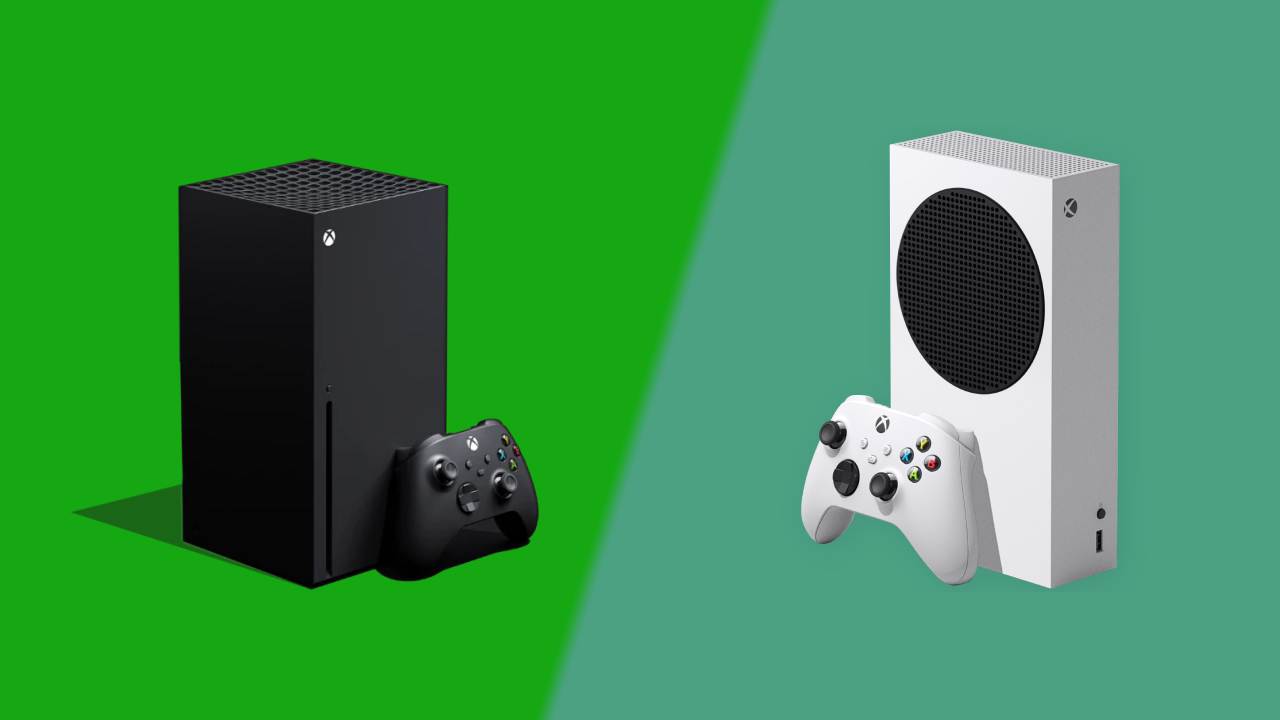
The Xbox Series X is a lot more powerful than the Series S. It utilizes its specs to significantly reduce load times and boost overall game performance and visual fidelity, while features such as Quick Resume and Smart Delivery give it the edge.
Pros
- Much faster loading times
- Dolby Vision + Atmos support
- Backwards compatibility
- 4K/60fps gameplay (4K/120Hz support)
Cons
- Exclusive library is lacking
- Windows 11 UI is drab
- Compatible TV required for full visual experience
The Xbox Series S is a great option if you want to avoid the sizable financial outlay required to own a full-blown new-gen console, but it has significantly less storage, prioritizes 1440p resolution for gaming, and does without the 4K HD Blu-Ray drive of the Xbox Series X.
Pros
- Amazingly compact
- Completely silent in operation
- Cheaper than the Series X
- Up to 1440p resolution
Cons
- 512GB SSD fills up fast
- 1TB variant is pricier
- No disc drive means digital-only
Xbox Series X vs Xbox Series S is something you may have weighed up if you're a first-time buyer, shopping around for one of Microsoft's current-gen consoles. There are a number of positives for both, but also many differences between them, which can make for a tricky purchasing decision for those not familiar with what makes each console unique.
The Xbox Series X vs Xbox Series S already set themselves apart aesthetically, but there are more than just superficial differences under the hood. The key distinguishing factor between each, for example, is that one supports physical media via a built-in disc drive, whereas the other is an entirely digital console.
If you’re looking for further insight into both consoles, our Xbox Series X review highlights the pros of the console alongside our Xbox Series S review. However, if you find yourself torn between Microsoft and Sony's latest machines, consider checking out our PS5 vs Xbox series X guide.
Xbox Series X vs Xbox Series S: key differences
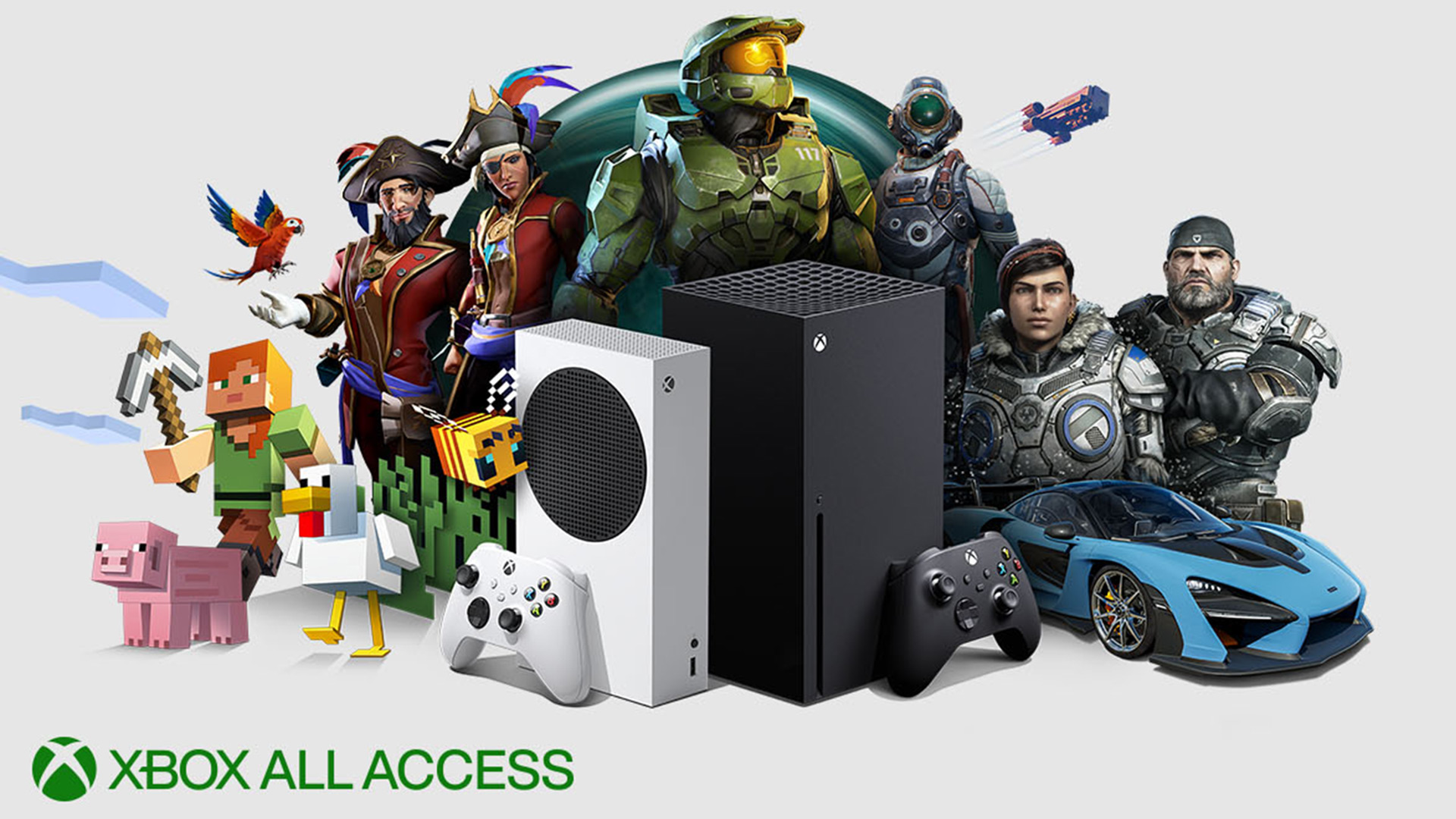
If we had to highlight three key differences between the consoles, it's these: the Xbox Series X has a 4K UHD Blu-ray drive capable of playing physical games and movies, while the Xbox Series S does not.
The Xbox Series X packs a large 1TB SSD that can store, on average, around 16 games, Meanwhile, the Xbox Series S has a 512GB SSD that only stores around four to five, though both can be expanded with a 512GB, 1TB, or 2TB Storage Expansion Card from Seagate. Finally, the Xbox Series X renders games in native 4K at 60 frames-per-second, while the Xbox Series S targets 1440p.
Otherwise, both include the same user interface, the same controller, and the same Xbox Velocity Architecture that enables features like Quick Resume. Both have the same media apps like Netflix and Prime Video, but more importantly, both can play exactly the same games. From what we’ve seen, people are drawn to the sheer power of the Xbox Series X. But don’t overlook the advantages of the more affordable model. Both work well and both can serve a different audiences.
Let's break them down even further. First up is the Xbox Series X, Microsoft’s flagship console. It’s capable of 4K graphics and is currently one of the most powerful consoles available. On paper, these specs are impressive, and it has a compact tower-style design that manages to be both unique and unobtrusive. It’s expensive, though, at $499 / £449 / AU$749, the same RRP as the PS5.
Sign up for breaking news, reviews, opinion, top tech deals, and more.
The Xbox Series S is far more affordable and a less powerful alternative for you to consider. However, it’s digital-only, so you’ll be at the mercy of the Microsoft Store for any purchases you make. That said, Xbox Game Pass, Microsoft's Netflix-like subscription service for games and Xbox Cloud Gaming (only available for Xbox Game Pass Ultimate subscribers), lets gamers stream games and alleviates some of the digital-only restrictions.
Overall, the Xbox Series S's price point is aimed at those on a stricter budget who are willing to compromise on power for a much more compelling price. At $299.99 / £249.99 / AU$499, it's substantially cheaper than its more powerful sibling. A black, 1TB model is also available to purchase now for $349 / £299 if you're looking to boost your storage from the base model's admittedly paltry 512GB. This is a full 1TB, too, already accounting for the space taken up by the console's BIOS.
Xbox Series X vs Xbox Series S: price
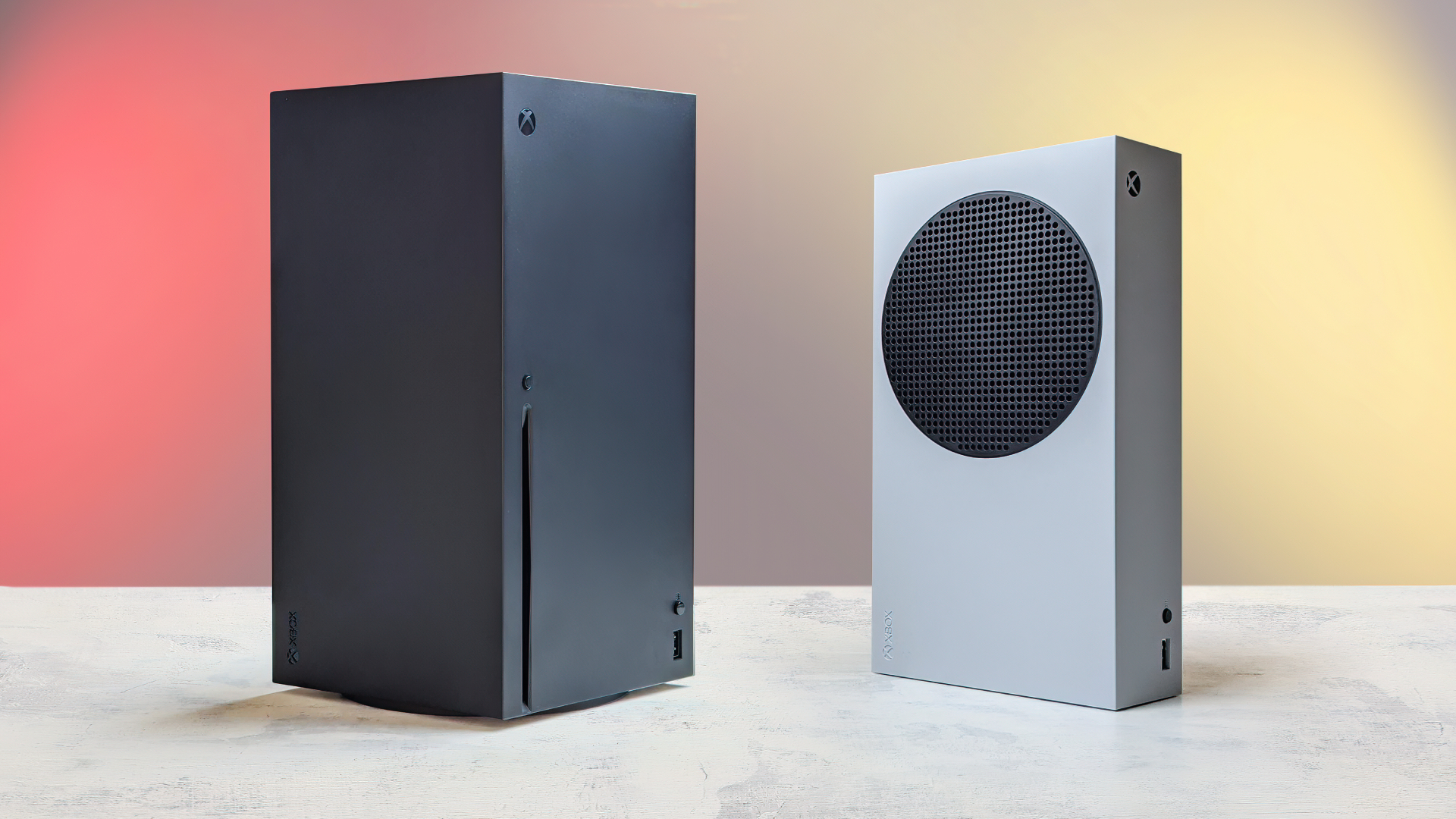
The Xbox Series X costs $499 / £449 / AU$749 and was launched on November 10, 2020. Packed with cutting-edge technology, this console goes head-to-head with the PS5, which also costs $499. The price point may be too expensive for some, but it puts the Xbox Series X in a strong position to compete with Sony’s hardware.
The Xbox Series S launched alongside the Series X and its price is much lower at just $299.99 / £249.99 / AU$499. A $200 saving will be very appealing to the more cost-conscious consumer. That’s considerably cheaper than the PS5 Digital Edition too, which retains the base PS5’s specifications but initially came in at $399.99 / £359.99 / AU$599 instead.
Xbox Series X vs Xbox Series S: specs
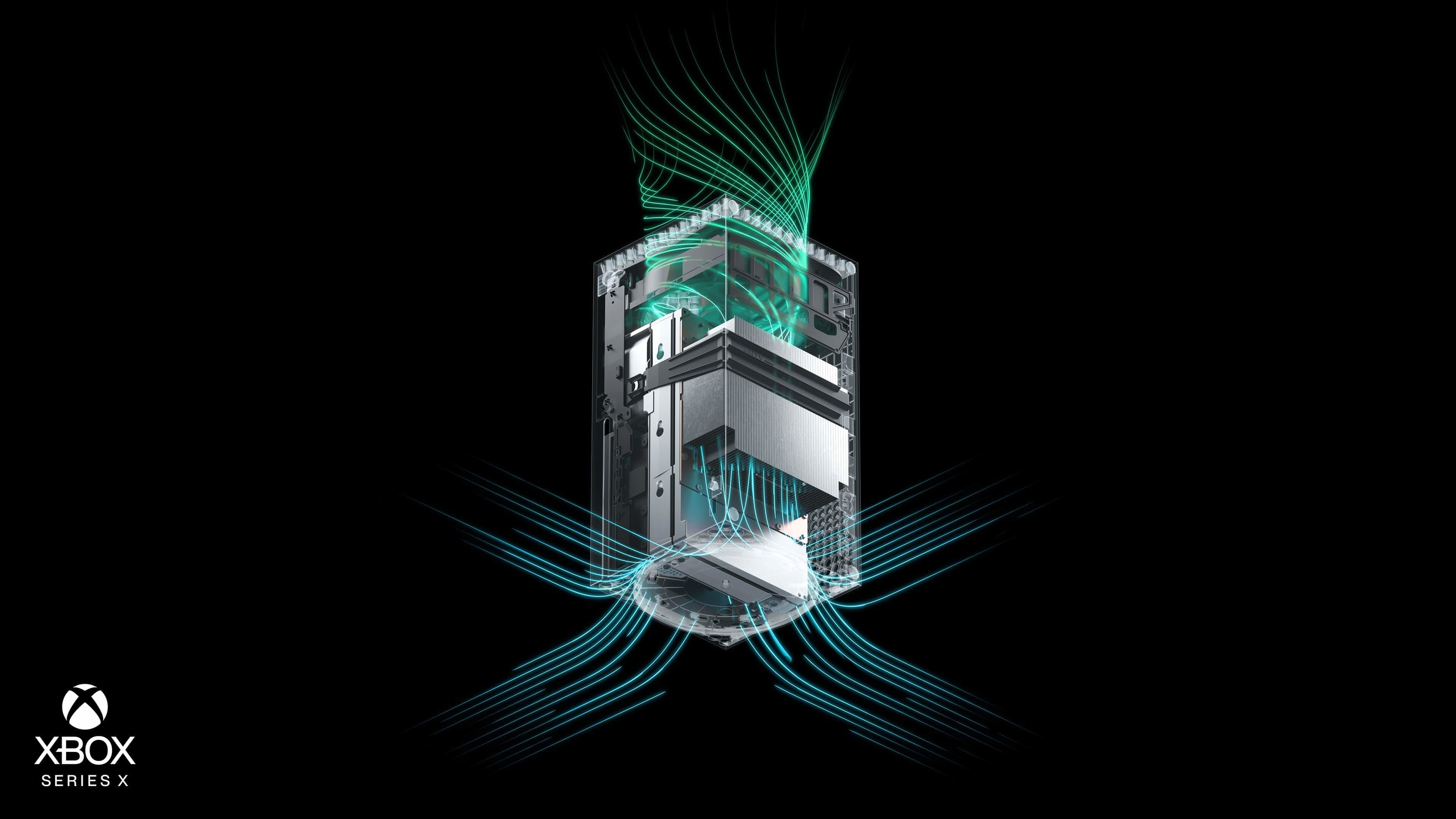
The Xbox Series X is a beast of a console that's truly brought us into the latest generation of gaming.
- CPU: Eight-core 3.8GHz (3.6GHz with SMT) custom AMD 7nm
- GPU: 12 teraflops 1.825GHz (locked)
- RAM: 16GB GDDR6
- Frame rate: Up to 120 fps
- Resolution: Up to 8K
- Optical: HD Blu-Ray disk drive
- Storage: 1TB NVMe SSD
With a 12 teraflop GPU capable of up to 120 frames per second, the Xbox Series X is twice as powerful as the Xbox One X, Microsoft’s former flagship console for the last generation. It supports various exciting new-gen features such as ray tracing, variable rate shading, and support for 8K resolution.
The Xbox Series X makes the wait when booting up games or loading new levels a thing of the past, thanks to its custom-designed super-fast NVMe SSD. The SSD is part of the console’s new Velocity Architecture, which allows multiple games to be suspended in the background while you’re playing something entirely different. Everything is more responsive and snappier as a result, too.
Microsoft is also trying to make latency a thing of the past on Xbox Series X. Forward-thinking features such as Auto Low Latency Mode (ALLM), communication improvements to the Xbox controller, and Variable Refresh Rate (VRR) support take full advantage of TVs with HDMI 2.1 support.
- CPU: Eight-core 3.6GHz (3.4GHz with SMT) custom AMD 7nm
- GPU: 4 teraflops at 1.550GHz
- RAM: 10GB GDDR6
- Frame rate: Up to 120 fps
- Resolution: 1440p with 4K upscaling
- Optical: No disk drive
- Storage: 512GB NVMe SSD
The Xbox Series S packs significant power for a small box. The console targets a resolution of 1440p instead of native 4K (some games do support native 4K, though), and is capable of 120fps gaming. It's got an almost identical CPU to the Xbox Series X, but the GPU is considerably less powerful, coming with 10GB of GDDR6 RAM instead of 16GB.
That might sound like a big compromise on paper, but remember the Xbox Series S is targeting 1440p/60fps instead of 4K/60fps. This means it needs less power to reach its pixel count, but it can still deliver all the new-gen features Microsoft is focusing on like ray tracing and 120fps.
There’s no disk drive, of course, and the storage is almost halved compared to the Xbox Series X. That’s admittedly concerning for a digital-only model, but Microsoft is undoubtedly hoping people are taking advantage of Xbox Cloud Gaming. That involves no downloads, since games are streamed from Microsoft’s remote data servers.
The storage of both consoles can be expanded, however. Microsoft is selling a proprietary expansion card that plugs into the back of the console, available in 512GB, 1TB, and 2TB options. The best Xbox One games can also be stored on a standard external hard drive to help free up space.
The Xbox Series S and Xbox Series X also support Spatial Sound, including Dolby Atmos and Dolby Vision, via streaming apps at launch. Dolby Vision support for gaming was introduced post-launch and is now available.
Xbox Series X vs Xbox Series S: games

Both the Xbox Series X and Xbox Series S can play exactly the same games, although they’ll undoubtedly look best on Xbox Series X. The compromises we’ve usually seen on Xbox Series S mainly focus on the resolution drop to 1440p from 4K, and likely more minor changes that probably won’t be as noticeable.
Both consoles offer backwards compatibility with the entire Xbox One library, and a select range of Xbox 360 and original Xbox games. Some FPS Boost games aren’t supported on Xbox Series S though, while others see greater benefits on Xbox Series X.
So while we're still waiting for some of the biggest new-gen exclusives like Fable to launch, there's still plenty to play, particularly if you have a large library of titles already. If you own a lot of physical copies, though, be mindful that these won’t work on Xbox Series S, due to the lack of disc drive.
If you're hoping to get Xbox Game Pass Ultimate for an even cheaper price, we've got good news. While this is currently being trialled in just the Republic of Ireland and Colombia, Microsoft is looking to launch an Xbox Game Pass family plan, allowing you and four players to jump in for a monthly cost of €21.99 – which comes to around $21.99 / £19.99 / AU$32.99.
Xbox Series X vs Xbox Series S: verdict
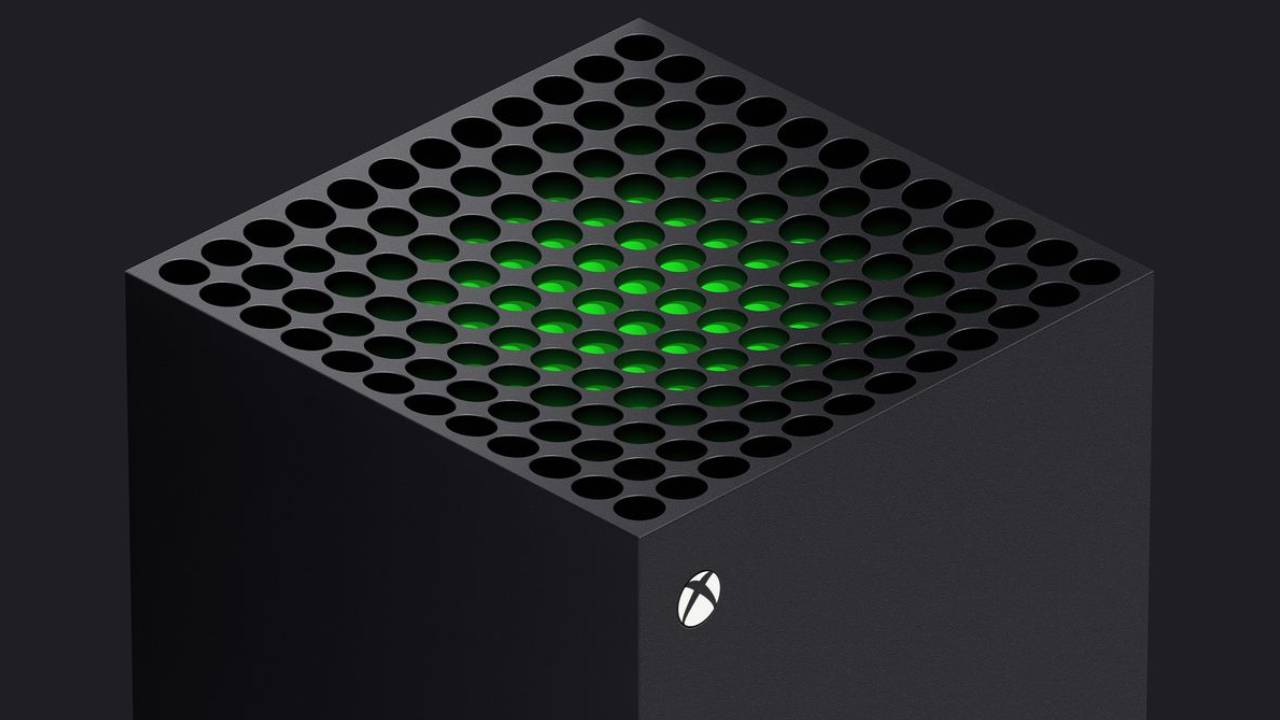
Microsoft may be onto something here. By offering two consoles that target different audiences, consumers ultimately have more choice and more ways to enter into the Xbox ecosystem. If only the best will do, pick up an Xbox Series X, but be prepared to pay a premium. Want to enter the next generation without breaking the bank? The Xbox Series S is a fantastic entry point, thanks to a tempting price.
Microsoft seems to have created two appealing iterations of its console, without one appearing less attractive than the other. Crucially, it can now fight the PS5 on two important fronts: price and performance. The Xbox Series S costs significantly less than the PS5 and the PS5 Digital Edition.
By creating an argument for Xbox Series X vs Xbox Series S, Microsoft has essentially done its best to turn consumers’ heads where it might not have done so before, was it a straight fight between Xbox Series X and PS5. And that’s surely a win for Xbox as a whole.
Xbox Series X vs Xbox Series S - Frequently Asked Questions
Is the Xbox Series X better than the Xbox Series S?
In terms of performance and power, the Xbox Series X delivers on a better scale than the Series S, which is reflected in its price. However, that’s not to say that the Xbox Series S is underpowered. Even though it boasts a smaller size than the Series X, the Series S still manages to pack a punch and perform almost as well as its flagship console. But, generally speaking, the Xbox Series X takes the biscuit as the more powerful console.
Is it better to buy Xbox One X or Xbox Series S?
We unequivocally recommend the Xbox Series S over the last-gen Xbox One X. While the latter is capable of 4K support, it often comes at the cost of neglecting a smooth performance. Xbox Series S tops out at 1440p, but can more reliably target higher framerates, and its internal NVMe SSD means games install and load much quicker than its last-gen counterpart.
How much storage does the Xbox Series S have compared to the Xbox Series X?
If storage is one of your primary concerns when shopping for a new console, the Xbox Series X may be a safer option. While the Series S still hosts a wealthy 512GB memory, which drops to around the 300GB mark once you factor in system software. The Xbox Series X offers slightly more with its initial 1TB storage, falling to the 800GB mark with system software considered. Then, of course, there’s always the option to add an SSD or an external hard drive to your console to boost the storage.

Rhys is TRG's Hardware Editor, and has been part of the TechRadar team for over four years. Particularly passionate about high-quality third-party controllers and headsets, Rhys strives to provide easy-to-read, informative coverage on gaming hardware of all kinds. As for the games themselves, Rhys is especially keen on fighting and racing games, as well as soulslikes and RPGs.
- Henry Stockdale
- Adam Vjestica
- Kara PhillipsEvergreen Writer
- Dashiell WoodGaming Editor